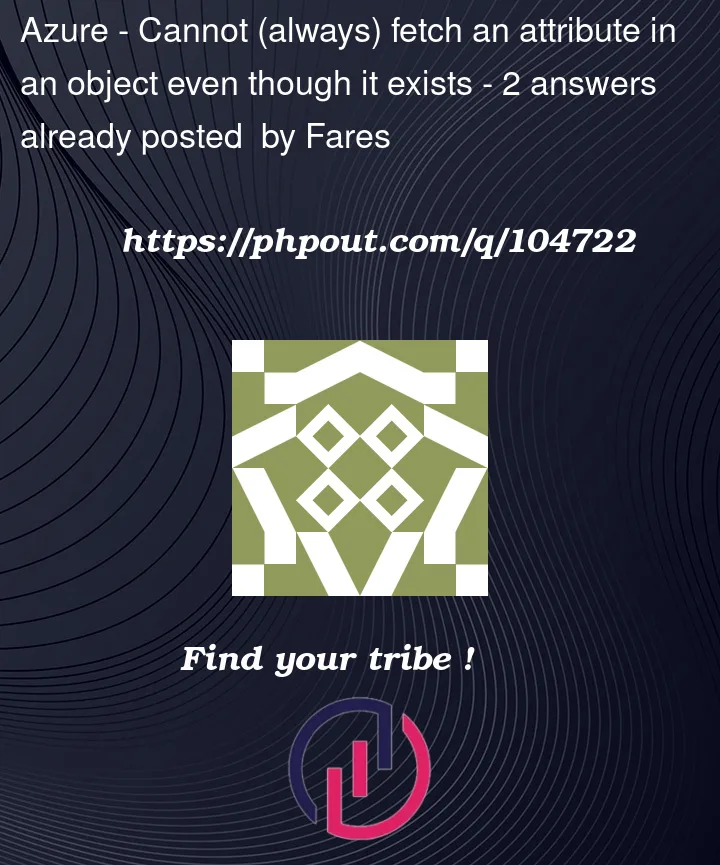I’m currently developing locally an Azure function that communicates with Microsoft Sentinel, in order to fetch the alert rules from it, and more specifically their respective querys :
credentials = AzureCliCredential()
alert_rules_operations = SecurityInsights(credentials, SUBSCRIPTION_ID).alert_rules
list_alert_rules = alert_rules_operations.list(resource_group_name=os.getenv('RESOURCE_GROUP_NAME'), workspace_name=os.getenv('WORKSPACE_NAME'))
The issue is that when I’m looping over list_alert_rules, and try to see each rule’s query, I get an error:
Exception: AttributeError: 'FusionAlertRule' object has no attribute 'query'.
Yet, when I check their type via the type() function:
list_alert_rules = alert_rules_operations.list(resource_group_name=os.getenv(
'RESOURCE_GROUP_NAME'), workspace_name=os.getenv('WORKSPACE_NAME'))
for rule in list_alert_rules:
print(type(rule))
##console: <class 'azure.mgmt.securityinsight.models._models_py3.ScheduledAlertRule'>
The weirder issue is that this error appears only when you don’t print the attribute. Let me show you:
- Print:
for rule in list_alert_rules:
query = rule.query
print('query', query)
##console: query YAY I GET WHAT I WANT
- No print:
for rule in list_alert_rules:
query = rule.query
...
##console: Exception: AttributeError: 'FusionAlertRule' object has no attribute 'query'.
I posted the issue on the GitHub repo, but I’m not sure whether it’s a package bug or a runtime issue. Has anyone ran into this kind of problems?
BTW I’m running Python 3.10.8
TIA!
EDIT:
I’ve tried using a map function, same issue:
def format_list(rule):
query = rule.query
# print('query', query)
# query = query.split('n')
# query = list(filter(lambda line: "//" not in line, query))
# query = 'n'.join(query)
return rule
def main(mytimer: func.TimerRequest) -> None:
# results = fetch_missing_data()
credentials = AzureCliCredential()
alert_rules_operations = SecurityInsights(
credentials, SUBSCRIPTION_ID).alert_rules
list_alert_rules = alert_rules_operations.list(resource_group_name=os.getenv(
'RESOURCE_GROUP_NAME'), workspace_name=os.getenv('WORKSPACE_NAME'))
list_alert_rules = list(map(format_list, list_alert_rules))




2
Answers
Sorry for the late answer as I've been under tons of work these last few days.
Python has an excellent method called
hasattrthat checks if the object contains a specific key. I've used it in the following way:The reason behind using this is because the method returns object of different classes, however inherited from the one same mother class.
Hope this helps.
I have tried with same as you used After I changed like below; I get the valid response.
Instead of this
Try below